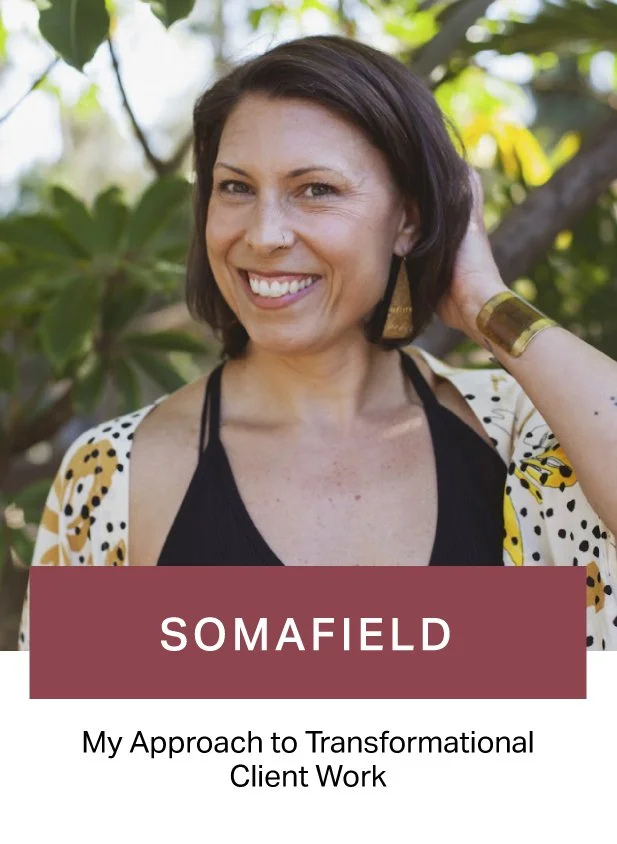Somatic Work Alone is Too Small for Me
If I’m honest, somatic work alone is too small for me as a practitioner. Now. Don’t get me wrong. I LOVE working somatically. (I’m a Somatic Psychotherapist after all and I developed a therapeutic approach that has experiential + somatic work as one of its core principles.)
But I’ve also seen somatic practitioners take it too far. If the only therapeutic interventions available are, “Where do you feel that in your body?” or “Let’s take a minute to get present with that…” or you spend hour after hour simply tracking sensation, the work feels flat, is less productive than it can be, and lacks power and skill on the part of the practitioner.
It also doesn’t serve every client because sometimes a client needs help making a schedule, or deciding whether to stay or go, or explaining a situation fully and then asking if their feelings make sense, or they need to be talked down from a spiral, or they need to piece together a pattern of abuse that they may be experiencing, or hundreds of other things.
Somatic work can be great in a lot of these situations. But not all and not every time.
Additionally, it can keep a client too much in their feelings. For clients who need support feeling their feelings for the first time, or for clients who come in and something big has just happened and they don’t yet know how they feel about it, this can be a good way to help them connect.
But for those clients who tend to already be feelings forward, somatic work can sometimes overemphasize a certain kind of emotional granularity (and possibly even an unhealthy level of self focus) that actually keeps them from moving forward in healthy ways, taking action, seeing a bigger picture, and coming into relationship with their feelings in a way where they’re not consumed by them.
So yes, I want somatic work in my toolbox. But I also want artistry, which is all about having a wide range of tools and abilities and being able to tune in in order to know what’s best needed in the moment.
Often newer practitioners will pledge allegiance to the modalities they’ve been taught and work them tirelessly with their clients. But this can sometimes make the process feel forced or stilted or can leave the client wanting more. And the practitioner can be stiff. Formulaic.
One way you can tell a seasoned practitioner is by their flexibility, their creativity, and their ability to use their artistry to surprise you and bring you all kinds of responses and interventions and solutions over time.
As practitioners, we all relax more over time. We build skills, range, and we’re not afraid to break the mold. And for those of us who are committed to not falling into a rut of doing the same thing over and over again in the way we work, we’re always finding new and creative ways to grow.
Keep going and keep that artistry alive. :)
Please forward this to anyone that comes to mind if you think they’d enjoy it. :)




